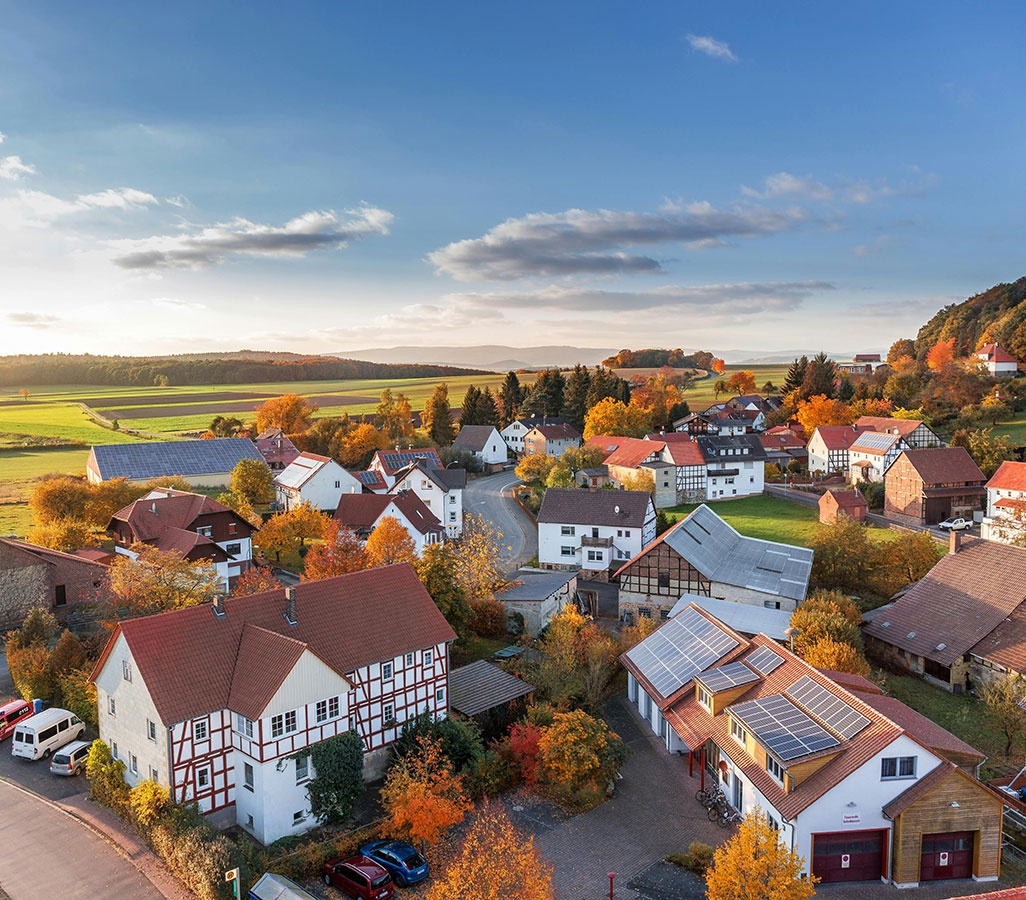As one of the North East’s leading solar panel installers, we understand that investing in solar energy is a significant decision for homeowners. As we receive numerous very similar enquiries from customers considering solar panels, we’ve compiled the most frequently asked questions to help you make an informed decision about taking the step towards solar power for your home, easily.
The Biggest Question We Get: How Do Solar Panels Actually Work?
Essentially, solar panels convert sunlight into electricity through the use of photovoltaic cells. When sunlight hits these cells, it creates an electric field that generates direct current (DC) electricity. An inverter is then needed to transform this generated DC power into a format your home can use – alternating current (AC).
If you have a battery installed, you can save any excess energy for future use. You can also set yourself up with the SEG scheme, which means you can sell any extra electricity created by your solar panels back to the National Grid, potentially earning you money for the surplus energy you produce.
Are Solar Panels Really Worth It in the UK Climate?
Despite common misconceptions about Britain’s weather, solar panels are highly effective in the UK. Modern solar technology works efficiently even on cloudy days, as panels generate electricity from daylight rather than direct sunshine. The UK receives sufficient solar irradiation to make solar panels a worthwhile investment, with most systems paying for themselves within 8-12 years whilst lasting 25-30 years or more.
How Much Do Solar Panels Cost?
As you can imagine, the cost of installing solar panels varies depending on a multitude of different factors such as: the size of your home, its energy requirements, and the chosen system specifications. Whilst solar panels are a relatively substantial initial investment, government incentives, reduced energy bills, and export payments make solar panels increasingly cost-effective.
In fact, many customers see their electricity bills reduced by 50-90%, depending on their energy usage patterns and the size of their system.
Is There Any Government Support Available?
You may be surprised to hear that the UK government offers various incentives to encourage the use of solar energy through the installation of solar panels.
The main one being the Smart Export Guarantee (SEG) scheme, which ensures you receive payment for excess electricity exported to the grid.
Some local councils also offer grants or low-interest loans for renewable energy installations, so it’s worth checking with your local authority about available schemes.
How Much Roof Space Do I Need?
A typical solar panel measures approximately 2 metres by 1 metre, and most residential installations require 15-25 square metres of roof space. However, modern high-efficiency panels can generate more electricity in smaller spaces. South-facing roofs with minimal shading offer optimal performance, although east- and west-facing installations can still be highly effective. Our surveyors assess each property individually to determine the best configuration for maximum energy generation.
Will Solar Panels Work During Power Cuts?
Standard grid-tied solar panel systems automatically shut down during power cuts for safety reasons, protecting utility workers repairing the grid. However, battery storage systems can provide backup power during outages, allowing you to use stored solar energy when the grid is unavailable.
How Long Do Solar Panels Last?
Quality solar panels typically last 25-30 years or longer, and although it is true that panels gradually lose efficiency over time, it’s typically at a small rate of just 0.5-0.8% annually. Even with this loss of efficiency in mind, solar panels should continue to generate electricity well beyond their warranty period. Inverters usually require replacement after 10-15 years; however, this cost is factored into the system’s overall financial projections.
Do Solar Panels Require Much Maintenance?
Once installed, solar panels require minimal maintenance. Regular cleaning may be beneficial, though rainfall often provides sufficient cleaning for most installations. Annual visual inspections can also help identify potential issues, and professional maintenance checks every few years are ideal to ensure optimal performance.
Will Solar Panels Increase My Property Value?
Research indicates that solar panels can increase property values by approximately 4-14%, depending on the system size and local market conditions.
Energy-efficient homes are increasingly attractive to buyers, particularly as energy costs continue to rise. Solar panels demonstrate a property’s commitment to sustainability and offer new owners immediate savings on their electricity bills.
What Happens If I Move House?
Solar panels are permanently attached to your property and typically transfer to new owners, potentially increasing the sale value of your home. The new owners benefit from reduced energy bills and any remaining export guarantee payments. If you’re considering moving within a few years, factor this into your solar investment decision, as the financial benefits may transfer to the new owners rather than being fully realised by you.
Getting Started With Solar
Choosing solar panels represents a commitment to renewable energy, which reduces your household’s carbon footprint and energy costs. Professional installation ensures optimal performance and safety compliance with UK building regulations. If you’re considering solar panels, contact us today for a detailed assessment of your property’s solar potential and a personalised quotation based on your specific requirements and energy usage patterns.
